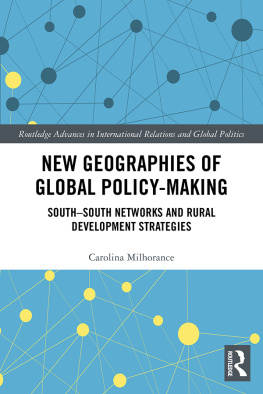Policing Pleasure
Policing Pleasure
Sex Work, Policy, and the State in Global Perspective
Edited by Susan Dewey and Patty Kelly

NEW YORK UNIVERSITY PRESS
New York and London
www.nyupress.org
2011 by New York University
All rights reserved
References to Internet websites (URLs) were accurate at the time of writing.
Neither the author nor New York University Press is responsible for URLs
that may have expired or changed since the manuscript was prepared.
Library of Congress Cataloging-in-Publication Data
Policing pleasure : sex work, policy, and the state in global perspective/
edited by Susan Dewey and Patty Kelly.
p. cm.
Includes bibliographical references and index.
ISBN 978-0-8147-8508-9 (cl : alk. paper)
ISBN 978-0-8147-8509-6 (pb: alk. paper)
ISBN 978-0-8147-8510-2 (ebook)
ISBN 978-0-8147-8511-9 (ebook)
1. ProstitutionGovernment policy. 2. ProstitutionPolitical aspects.
3. Prostitution. I. Dewey, Susan. II. Kelly, Patty, 1968
HQ121.P65 2011
363.44dc23 2011018457
New York University Press books are printed on acid-free paper, and their binding materials are chosen for strength and durability. We strive to use environmentally responsible suppliers and materials to the greatest extent possible in publishing our books.
Manufactured in the United States of America
c 10 9 8 7 6 5 4 3 2 1
p 10 9 8 7 6 5 4 3 2 1
To all those who shared their stories with us
Acknowledgments
We are both exceedingly grateful to Jennifer Hammer, our editor at New York University (NYU) Press, whose wholehearted enthusiasm for the project energized and inspired us as we moved from a rather loosely structured book proposal to a polished final manuscript. Others at NYU Press were of tremendous assistance in bringing this project to fruition, including Assistant Editor Gabrielle Begue, Managing Editor Despina Gimbel, and Copyeditor Rita Bernhard. Two anonymous reviewers offered helpful feedback and constructive criticism that resulted in a more cohesive manuscript.
This volume initially drew its inspiration from our independent research on sex work and public policy, which has grown immeasurably as a result of our collaboration with the diverse set of international scholars whose work is featured in this volume. A great deal of this collaborative energy stemmed from interactions between some of this volumes contributors at two consecutive invited sessions at the Annual Meeting of the American Anthropological Association. The 2010 session Gendered Migration and the Global Circulation of Trafficking Discourse, sponsored by the Association for Feminist Anthropology, was co-organized by Tiantian Zheng and Susan Dewey, and afforded the opportunity to receive feedback from Yasmina Katsulis, Denise Brennan, Svati Shah, Nandita Sharma, and Carole Vance. Discussions before and after our jointly organized 2009 panel session, Moral Borders and the Boundaries of Labor: Culture and Commodified Sexualities in the Neoliberal Era, sponsored by the Society of Lesbian and Gay Anthropologists, helped enormously in strengthening our arguments about relationships between sex workers and the state.
In addition to these jointly experienced sources of inspiration, Susan wishes to thank Naomi Schneider at the University of California Press for bringing Patty into her life. It has been an honor to work with a scholar of her caliber. Susan also expresses her boundless gratitude to her colleagues in Gender and Womens Studies at the University of Wyoming, who are a source of constant support and precious friendship. She cannot imagine a more congenial group of coworkers than Cathy Connolly, Colleen Denney, Susie McKay, Danielle Pafunda, and Bonnie Zare. Thanks are also extended to her colleagues in International Studies at the University of Wyoming, particularly Jean Garrison. This project was also assisted immeasurably by the excellent work of Michael Goodyear in creating and maintaining a listserv for researchers interested in sex work and public policy.
Patty is incredibly grateful to Susan for her unbelievable diligence, patience, friendship, and motivation; without Susan, this project would not have happened. She also thanks her wonderful colleagues in the Department of Anthropology at George Washington University, her family, and Teresa Mascia, whose presence gave her the time to sit and write and think.
1
Introduction
Sex Work and the Politics of Public Policy
SUSAN DEWEY AND PATTY KELLY
When a woman is arrested for selling sex on the streets of Nairobi, the very first thing she does is pick up her mobile phone. She dials a number from a list of her colleagues, who will do what they can to earn sufficient bribe money to secure her release. As Chimaraoke Izugbara observes in this volume, participation in such information networks is critical to sex workers survival in Nairobi. Sex workers, taxi drivers, and even night watchmen communicate via cell phone to help women navigate the dangerous streets of urban Kenya, securing clients while avoiding police harassment, arrest, and even worse fates. According to Kenyan sex worker Irene, We have to watch out and act like sisters to each other. The one you help today will help you tomorrow. Once in custody, as twenty-five-year-old Melissa confirms, you cant tell what they will do to you once the police have you with them. The list of indignities that sex workers suffer at the hands of law enforcement is long, and includes rape, physical and verbal abuse, illegal detention, and extortion. Such crimes against sex workers are perpetrated not only by police but also by clients who view them as easy prey. As twenty-three-year-old Comfort says, People know they can get away with anything they do to you because they know you cant even go to the police.
Mnica sits waiting in the Anti-Venereal Medical Service of the legal, state-run brothel where she works in the southern Mexican city of Tuxtla Gutirrez. She is surrounded by other women who also wait, clutching the Sanitary Control Cards that deem them registered with the city, disease-free, and able to work. When her turn comes, Mnica will receive a basic gynecological exam and any number of tests for illnesses ranging from simple bacterial vaginosis to HIV. Workers who test positive for any communicable infection are legally forbidden from exchanging sex for money until they are cured. Built in 1991, the Galactic Zone, as this particular brothel is called, is considered by municipal authorities a showplace for the successes of neoliberalsocial policy in general and state-regulated prostitution in particular. The countless numbers of men and women who sell sex illegally in Tuxtlas streets and bars, driven to do so, in part, by the neoliberal economic policies that have resulted in ever increasing rural to urban migration and immiseration due to the widespread failure of subsistence farming, are viewed by city officials as sources of disease and chaos.
In contrast, the highly regulated workers of the Galactic Zone are, to many, symbols of modern progress. For many workers themselves, the testing and regulation they experience is both socially and personally beneficial; as Lorena puts it, Its like a secretary with her typewriter. Ive got to keep my machine clean. Yet political agendas, economic interests, and gender discrimination sometimes combine to create a dangerous situation in the brothel. In one particularly sobering example, four women immediately tested positive for HIV upon switching medical laboratories, thus casting doubts upon the efficacy of the states claims to have improved public health via increased regulation.
Next page









